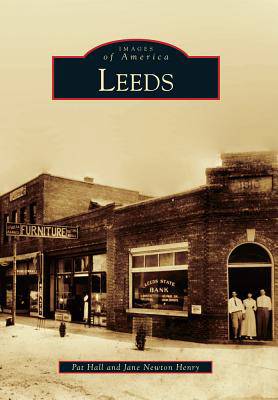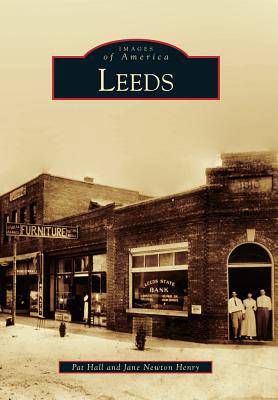
Bedankt voor het vertrouwen het afgelopen jaar! Om jou te bedanken bieden we GRATIS verzending (in België) aan op alles gedurende de hele maand januari.
- Afhalen na 1 uur in een winkel met voorraad
- In januari gratis thuislevering in België
- Ruim aanbod met 7 miljoen producten
Bedankt voor het vertrouwen het afgelopen jaar! Om jou te bedanken bieden we GRATIS verzending (in België) aan op alles gedurende de hele maand januari.
- Afhalen na 1 uur in een winkel met voorraad
- In januari gratis thuislevering in België
- Ruim aanbod met 7 miljoen producten
Zoeken
Omschrijving
Although Leeds State Bank opened in 1910, the small city's history as the primary population center of the Cahaba Valley started by 1810, when European woodsmen came through Tennessee to live along the Cahaba Trail with the Cherokee Indians. By 1821, Henry Little, a Scottish descendant, built his log home near an existing gristmill. In 1857, he rebuilt the mill as his version of the regionally famous Fuller's Mill. Early settlements consisted of Europeans and Cherokees who remembered the American Revolution and who fought in the War of 1812, which they believed was a second revolution. Free African Americans arrived in the 1880s with the building of the railroad, bringing added ingenuity. All founding groups were Americans who demonstrated their sense of community, value of education, and reverence for God as they began a Leeds heritage that includes three Medal of Honor recipients, as well as famous statesmen, scholars, athletes, entertainers, and builders.
Specificaties
Betrokkenen
- Auteur(s):
- Uitgeverij:
Inhoud
- Aantal bladzijden:
- 128
- Taal:
- Engels
- Reeks:
Eigenschappen
- Productcode (EAN):
- 9780738591254
- Verschijningsdatum:
- 1/10/2012
- Uitvoering:
- Paperback
- Formaat:
- Trade paperback (VS)
- Afmetingen:
- 163 mm x 231 mm
- Gewicht:
- 272 g

Alleen bij Standaard Boekhandel
+ 69 punten op je klantenkaart van Standaard Boekhandel
Beoordelingen
We publiceren alleen reviews die voldoen aan de voorwaarden voor reviews. Bekijk onze voorwaarden voor reviews.









